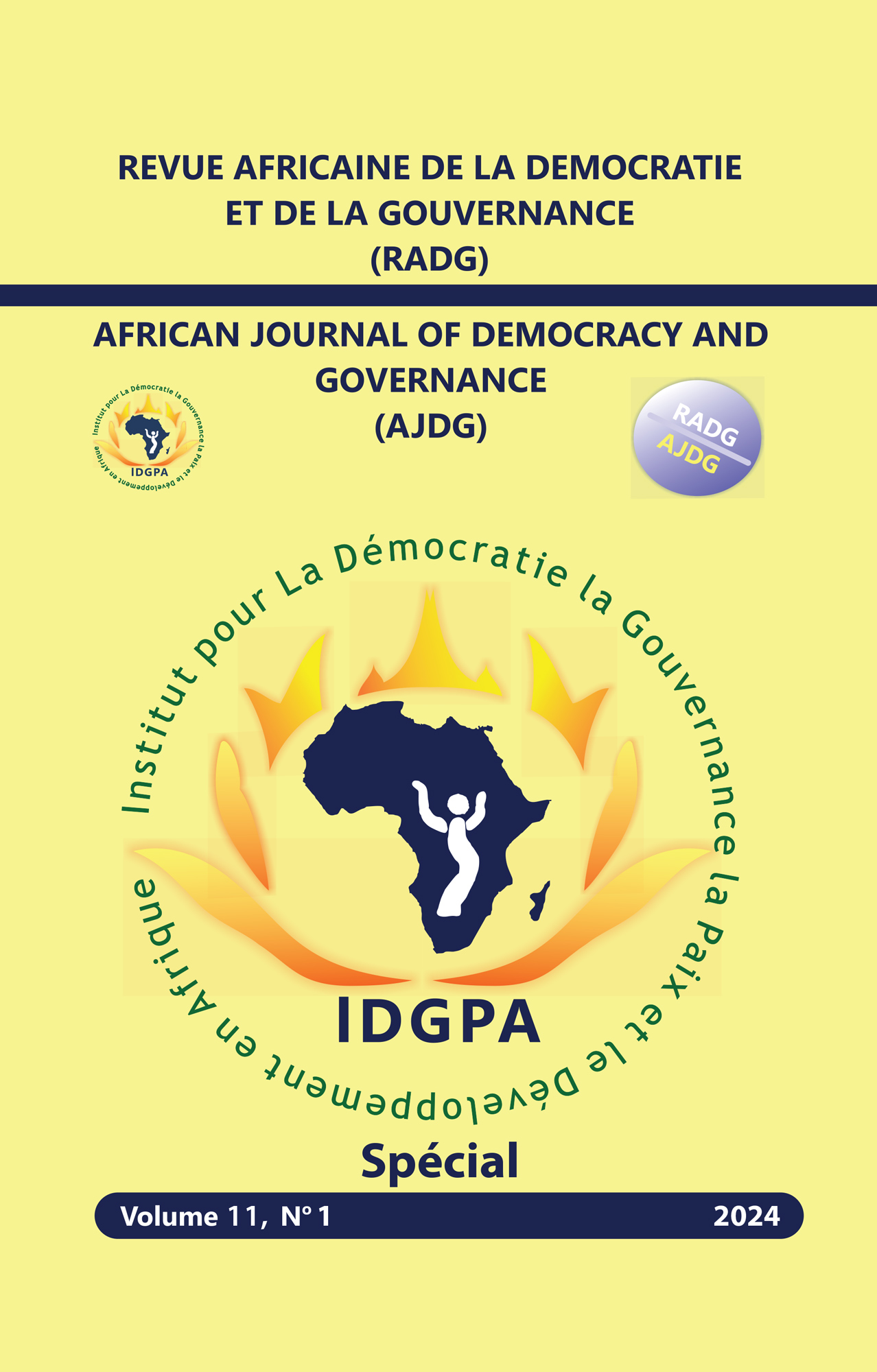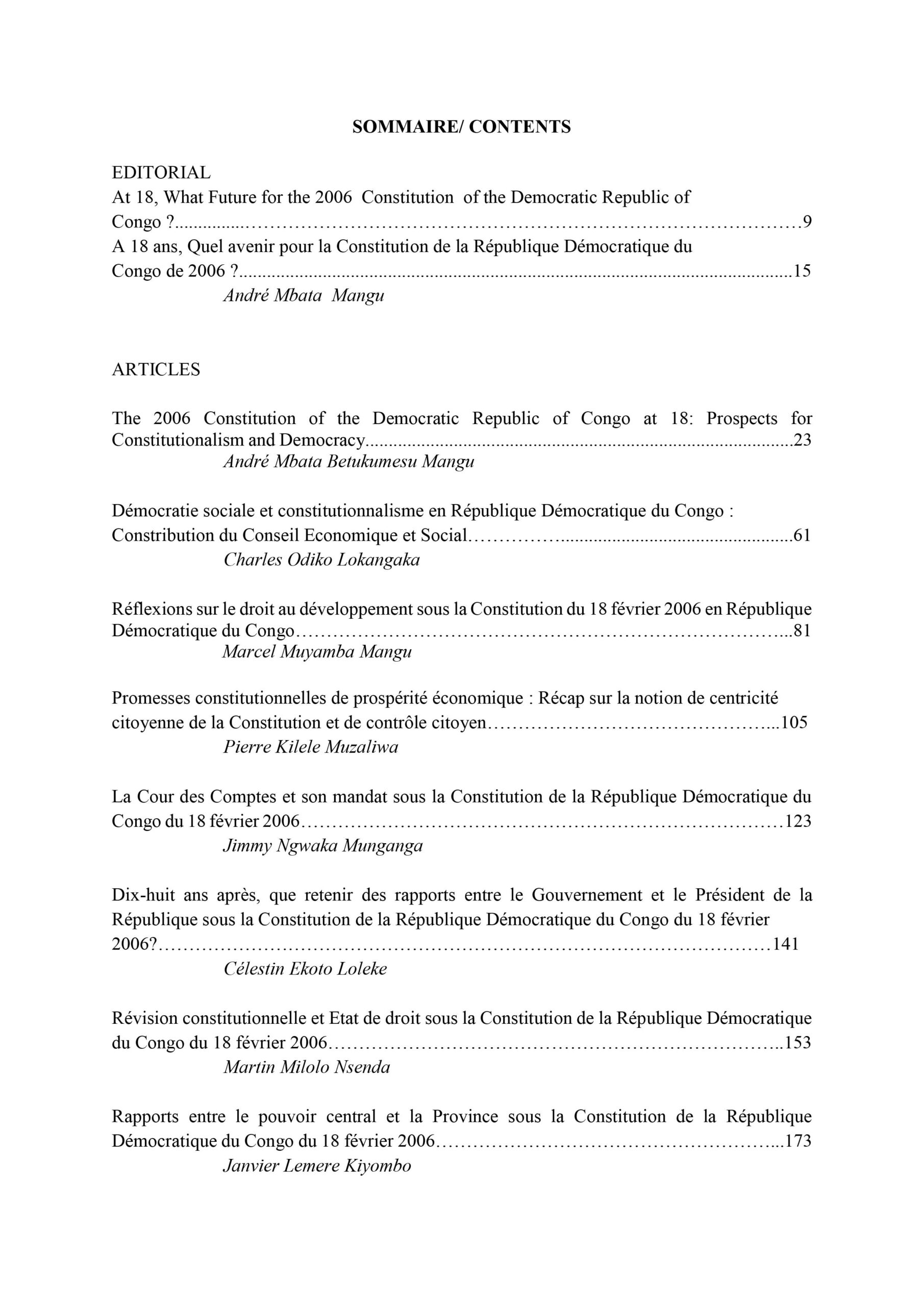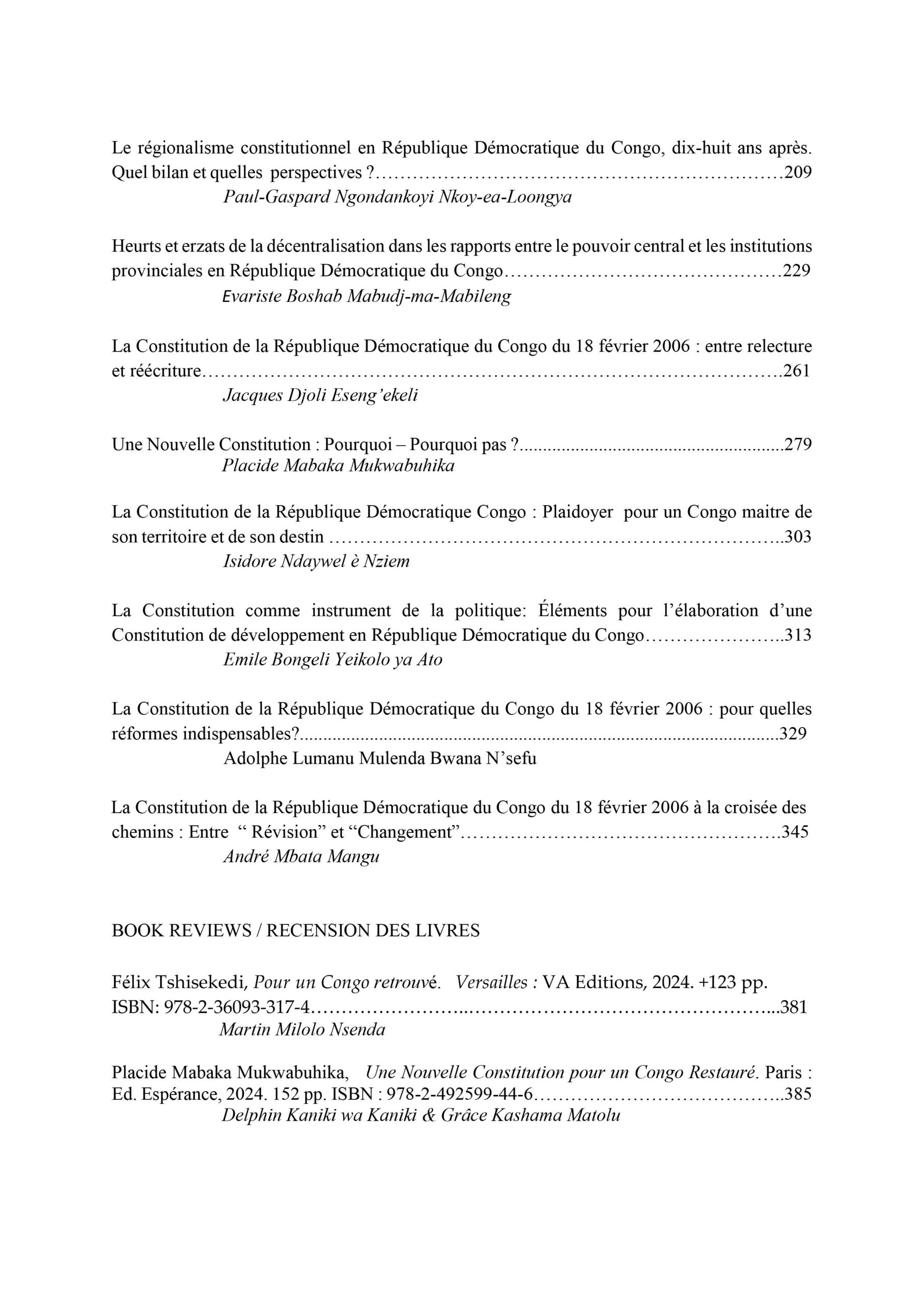La Constitution de la République Démocratique du Congo du 18 février 2006, 18 ans après : Entre relecture et réécriture.
$ 10,00
Jacques Djoli Eseng’ekeli, Professeur ordinaire, Faculté de Droit, Université de Kinshasa, Rapporteur de l’Assemblée Nationale, Député National, Sénateur honoraire, Ancien Vice-Président de la CENI, République Démocratique du Congo
Abstract
Mythological foundation of the “living together” of a nation, expression of the political and philosophical project, the Constitution appears like a taboo, a totem that can only be touched with a trembling hand. If we cannot bereave successive generations of citizens of any possibility of modifying or even changing the Constitution, a constitutional crisis is not necessarily a crisis of the constitutional norm in itself, but that of internalization and acceptance by the actors of the values displayed by the Grundnorm. Rewriting the text or rereading it leads to resolve the democratic paradox by reconciling the imperatives of constitutionalism and the desire to re-enchant the game through the diachronic adaptation of the text. Beyond rewriting or rereading, we should take control, through an ontological conceptualization, of the foundation of our living together, the matrix of the future. It is critical to rethink or recast our imagination in order to rediscover the mythological foundations of our laws.
Résumé
Fondement mythologique du “vivre-ensemble” d’un peuple, expression du projet politique et philosophique, la Constitution apparait comme un tabou, un totem qu’on ne touche que d’une main tremblante. Si on ne peut priver des générations successives de citoyens de toute possibilité de modifier voire de changer de Constitution, une crise constitutionnelle n’est pas nécessairement une crise de la norme constitutionnelle en soi, mais celle de l‘intériorisation et de l’acceptation par les acteurs des valeurs que véhicule la Norme fondamentale. La réécriture du texte ou sa relecture viennent ainsi résoudre le paradoxe démocratique en conciliant les impératifs du constitutionnalisme et la volonté de ré-enchanter le jeu par l’adaptation diachronique du texte. Au-delà de la réécriture ou de relecture, il faut reprendre en main, par une conceptualisation ontologique le fondement de notre vivre-ensemble, la matrice de devenir. Il est important de repenser ou de refonder notre imaginaire afin de redécouvrir les fondements mythologiques de nos lois.
Description
Djoli Eseng’ekeli, J. « La Constitution de la République Démocratique du Congo du 18 février 2006, 18 ans après : Entre relecture et réécriture. », African Journal of Democracy and Governance, Vol 11, No 1, 2024, pp 261-278
Jacques Djoli Eseng’ekeli, Professeur ordinaire, Faculté de Droit, Université de Kinshasa, Rapporteur de l’Assemblée Nationale, Député National, Sénateur honoraire, Ancien Vice-Président de la CENI, République Démocratique du Congo
Abstract
Mythological foundation of the “living together” of a nation, expression of the political and philosophical project, the Constitution appears like a taboo, a totem that can only be touched with a trembling hand. If we cannot bereave successive generations of citizens of any possibility of modifying or even changing the Constitution, a constitutional crisis is not necessarily a crisis of the constitutional norm in itself, but that of internalization and acceptance by the actors of the values displayed by the Grundnorm. Rewriting the text or rereading it leads to resolve the democratic paradox by reconciling the imperatives of constitutionalism and the desire to re-enchant the game through the diachronic adaptation of the text. Beyond rewriting or rereading, we should take control, through an ontological conceptualization, of the foundation of our living together, the matrix of the future. It is critical to rethink or recast our imagination in order to rediscover the mythological foundations of our laws.
Résumé
Fondement mythologique du “vivre-ensemble” d’un peuple, expression du projet politique et philosophique, la Constitution apparait comme un tabou, un totem qu’on ne touche que d’une main tremblante. Si on ne peut priver des générations successives de citoyens de toute possibilité de modifier voire de changer de Constitution, une crise constitutionnelle n’est pas nécessairement une crise de la norme constitutionnelle en soi, mais celle de l‘intériorisation et de l’acceptation par les acteurs des valeurs que véhicule la Norme fondamentale. La réécriture du texte ou sa relecture viennent ainsi résoudre le paradoxe démocratique en conciliant les impératifs du constitutionnalisme et la volonté de ré-enchanter le jeu par l’adaptation diachronique du texte. Au-delà de la réécriture ou de relecture, il faut reprendre en main, par une conceptualisation ontologique le fondement de notre vivre-ensemble, la matrice de devenir. Il est important de repenser ou de refonder notre imaginaire afin de redécouvrir les fondements mythologiques de nos lois.
Mots-clés : Constitution ; Lecture ; Réécriture ; Relecture ; République Démocratique du Congo





Avis
Il n’y a pas encore d’avis.